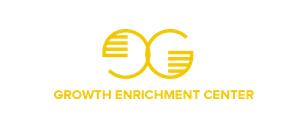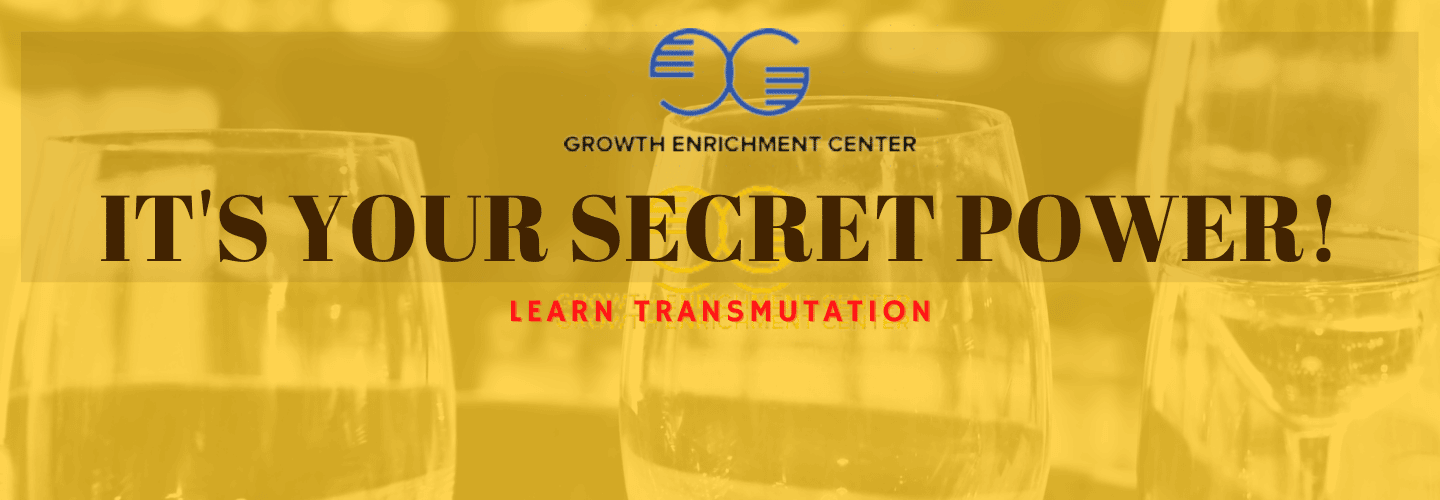
When was the last time you paused to contemplate how confirmation bias might be shaping your daily interactions and decisions? Think about the instances where your beliefs or preconceptions may have influenced your perception of a situation without you even realizing it. By recognizing these subtle biases in various aspects of your life, you can uncover a whole new level of self-awareness and open yourself up to a world of possibilities. So, are you ready to challenge your assumptions and explore the impact of confirmation bias in your everyday experiences?
Definition of Confirmation Bias
To understand confirmation bias, imagine yourself wearing a pair of glasses that only allow you to see what confirms your existing beliefs. This bias can shape the way you perceive information, leading you to seek out evidence that supports what you already think or feel, while dismissing anything that challenges it. It's like being in a bubble where only certain ideas are allowed in, reinforcing your current opinions and views.
This bias is a natural part of being human. Our brains crave consistency and familiarity, often preferring information that aligns with what we already know. However, recognizing this tendency is the first step in overcoming it. By acknowledging that you might have this bias, you can actively work to seek out diverse perspectives and consider information that challenges your beliefs.
In a world full of differing opinions and viewpoints, embracing intellectual humility and being open to changing your mind can lead to personal growth and a deeper understanding of the world around you. Remember, it's okay to question your own beliefs and be open to new ideas – that's where true growth and learning happen.
Influence on Decision Making
When making decisions, confirmation bias can impact your thought process without you even realizing it. Being aware of how bias influences your decision-making is essential.
Decision-Making Process Impact
Understanding how confirmation bias impacts your decision-making process can lead to more informed and objective choices. When making decisions, it's important to recognize how your preconceived beliefs and preferences can unconsciously influence your judgment. Confirmation bias can subtly steer you towards seeking out information that aligns with what you already believe, while disregarding conflicting evidence.
By being aware of this tendency, you empower yourself to actively seek diverse perspectives, challenge your assumptions, and make decisions based on a more all-encompassing view of the situation. Embracing a mindset that welcomes different viewpoints and questions assumptions can help you navigate complex decisions with greater clarity and fairness.
Recognizing Biased Decision-Making
In your decision-making process, recognizing biased influences is crucial for making informed and objective choices. Biases can lead you astray, clouding your judgment and affecting the outcomes of your decisions. Here's how you can identify biased decision-making:
- Emotional Attachment: Acknowledge when your emotions are heavily influencing your choices.
- Selective Perception: Be aware of only seeking out information that aligns with your preconceived notions.
- Overconfidence: Recognize when your confidence in a particular choice may be inflated.
Strategies to Combat
To counter the influence of biases on your decision-making, consider implementing practical strategies that promote objectivity and critical thinking.
Start by actively seeking out diverse perspectives and information sources. Engage in constructive debates with others who hold different views to challenge your own assumptions.
Practice mindfulness to become more aware of your thoughts and emotions, allowing you to pause and reflect before making a decision. Keep a decision journal to track your reasoning process and outcomes, enabling you to identify patterns of bias over time.
Social Media Echo Chambers
Immersing yourself in social media circles that only reinforce your existing beliefs can create a powerful echo chamber effect. This phenomenon can limit your exposure to diverse perspectives and lead to a skewed perception of reality.
Here's how you can recognize and break free from social media echo chambers:
- Seek Varied Sources: Actively follow accounts or pages that present different viewpoints from your own. This can help you gain a more thorough understanding of various issues.
- Engage in Constructive Discussions: Instead of dismissing opposing views, engage in respectful dialogues. This can challenge your beliefs and encourage critical thinking.
- Fact-Check Information: Before sharing or accepting information, verify its credibility from multiple reliable sources. This can prevent the spread of misinformation within your social media circles.
Workplace Dynamics

Mastering workplace dynamics can be a challenge, but by focusing on team communication strategies, leadership decision-making, and conflict resolution techniques, you can foster a positive and productive environment.
Embrace open communication, encourage diverse perspectives, and approach conflicts with a solution-oriented mindset.
Team Communication Strategies
In order to foster effective workplace dynamics, it's essential to prioritize clear and open communication within your team. Team communication strategies play a pivotal role in ensuring everyone is on the same page and working towards common goals.
Here are some key strategies to enhance communication within your team:
- Active Listening: Encourage team members to listen attentively to each other without interrupting, showing respect for diverse perspectives.
- Regular Check-ins: Schedule regular team meetings or check-ins to provide updates, share feedback, and address any concerns openly.
- Utilize Collaboration Tools: Embrace technology to facilitate communication, whether through project management platforms, messaging apps, or video conferencing tools.
Leadership Decision Making
To excel in Leadership Decision Making within your workplace dynamics, it's vital to cultivate a culture where diverse perspectives are valued and decisions are made collaboratively.
As a leader, inspire your team to contribute their unique viewpoints, fostering an environment where everyone feels heard and respected. Encourage open discussions, embracing differing opinions, and challenging the status quo.
By incorporating a variety of perspectives, you can enhance the quality of decisions and drive innovation within your organization. Remember, effective leadership isn't about making decisions in isolation; it's about leveraging the collective intelligence of your team.
Embrace diversity, promote inclusivity, and watch how collaborative decision-making propels your team towards success.
Conflict Resolution Techniques
Embracing effective conflict resolution techniques in workplace dynamics is crucial for fostering a harmonious and productive environment where issues are addressed promptly and respectfully. When conflicts arise, consider these strategies:
- Active Listening: Truly listen to the other person's perspective without interrupting. Repeat back what you've heard to confirm understanding.
- Collaborative Problem-Solving: Work together to find mutually beneficial solutions rather than focusing on individual wins.
- Maintaining Professionalism: Even in heated moments, aim to uphold a professional demeanor. Respect and kindness go a long way in resolving conflicts constructively.
Relationship Conflicts

Managing relationship conflicts can be a challenging but essential aspect of personal growth and communication. When conflicts arise in relationships, it's important to approach them with empathy and understanding. It's easy to fall into the trap of confirmation bias during conflicts, where you only seek out information that aligns with your preconceived notions, potentially leading to misunderstandings and further discord.
To navigate relationship conflicts effectively, it's vital to actively listen to the other person's perspective without immediately jumping to conclusions. Acknowledge your own biases and be open to exploring alternative viewpoints. Remember that conflicts can offer opportunities for growth and deeper connection if approached with an open mind and willingness to communicate openly.
Political Beliefs
During discussions about political beliefs, remember that actively listening and being open to different viewpoints can lead to meaningful conversations and a deeper understanding of others' perspectives. Approaching political discussions with an open mind and a willingness to engage in respectful dialogue is crucial.
Here are a few tips to navigate conversations about political beliefs:
- Listen attentively: Focus on what the other person is saying without interrupting. This shows respect and allows for a more productive exchange of ideas.
- Ask questions: Seek clarification or more information about the other person's viewpoints. Demonstrating a genuine interest in understanding their perspective is important.
- Express your views thoughtfully: Share your thoughts in a respectful manner, avoiding personal attacks or dismissive language. Engaging in a constructive dialogue can foster mutual respect and broaden your understanding of different political stances.
Consumer Behavior

Understanding consumer behavior is vital for businesses aiming to meet the needs and preferences of their target audience effectively. As a consumer yourself, you know how your choices are influenced by various factors. Your preferences, past experiences, social influences, and emotions all play a role in shaping your buying decisions.
This understanding is essential for businesses to tailor their products and marketing strategies to resonate with you on a deeper level.
When you recognize your own biases in consumer behavior, you can also empathize with how others may fall into similar patterns. Businesses that take the time to truly understand their consumers can create more meaningful connections and offer products or services that genuinely address their needs.
News Consumption Habits
In shaping your worldview, your news consumption habits play a significant role in influencing your perspectives and understanding of the world around you. The sources you choose to follow and the content you engage with can either broaden your outlook or reinforce existing beliefs.
Here are some key points to take into account:
- Diverse Sources: Actively seek news from a variety of sources to get a well-rounded view of different perspectives and reduce the risk of bias.
- Fact-Checking: Verify information before accepting it as true to avoid falling into the trap of spreading misinformation.
- Critical Thinking: Approach news critically, questioning the motives behind the stories and analyzing the evidence presented before forming opinions.
Overcoming Confirmation Bias

To combat confirmation bias, actively challenge your preconceived notions by seeking out and considering information that contradicts your beliefs. It's natural to gravitate towards ideas that confirm what we already think, but true growth comes from being open to different perspectives. Start by diversifying your sources of information – follow people with varying viewpoints on social media, read articles from different political leanings, and engage in discussions with people who've different opinions.
Practice active listening when engaging in conversations, instead of just waiting for your turn to speak. Really try to understand where the other person is coming from, even if you disagree. Reflect on why you hold certain beliefs and be willing to adjust them if presented with compelling evidence to the contrary. Embrace the discomfort that comes with challenging your own views – it signifies growth and a willingness to learn. Remember, being open-minded doesn't mean abandoning your principles, but rather refining them through thoughtful consideration of diverse perspectives.
Frequently Asked Questions
How Does Confirmation Bias Impact Personal Relationships?
In personal relationships, confirmation bias can lead you to interpret situations in a way that reinforces your existing beliefs, potentially causing misunderstandings or conflict. Stay open-minded, consider different perspectives, and communicate openly to foster understanding.
Can Confirmation Bias Affect Workplace Productivity?
Confirmation bias can greatly impact workplace productivity by leading you to favor information that confirms your preconceptions. Stay open-minded, seek diverse perspectives, and challenge your assumptions to foster a more effective and collaborative work environment.
What Role Does Confirmation Bias Play in Consumer Behavior?
When making buying decisions, confirmation bias can lead you to seek information that supports your existing beliefs, overlooking contradictory evidence. Keep an open mind to avoid tunnel vision and make well-informed choices.
How Can Individuals Recognize Confirmation Bias in News Consumption?
To recognize confirmation bias in news consumption, pause and reflect on your reactions. Seek diverse sources, challenge your beliefs, and consider opposing views. Stay open-minded and question information before forming conclusions. Your awareness is key.
Are There Effective Strategies to Overcome Confirmation Bias in Decision Making?
To overcome confirmation bias in decision making, challenge your assumptions, seek diverse perspectives, and consider evidence objectively. Embrace curiosity, be open to change, and actively engage with differing viewpoints. By doing so, you can make more informed and balanced choices.
Conclusion
To sum up, recognizing confirmation bias is like removing blinders to see the full spectrum of colors in the world. By actively challenging our preconceptions and embracing diverse perspectives, we can enrich our decision-making, deepen our relationships, and foster a more inclusive society.
Let's break free from the echo chambers and embrace the beauty of a kaleidoscope of ideas. Embrace the rainbow of perspectives and watch your world flourish with understanding and empathy.

